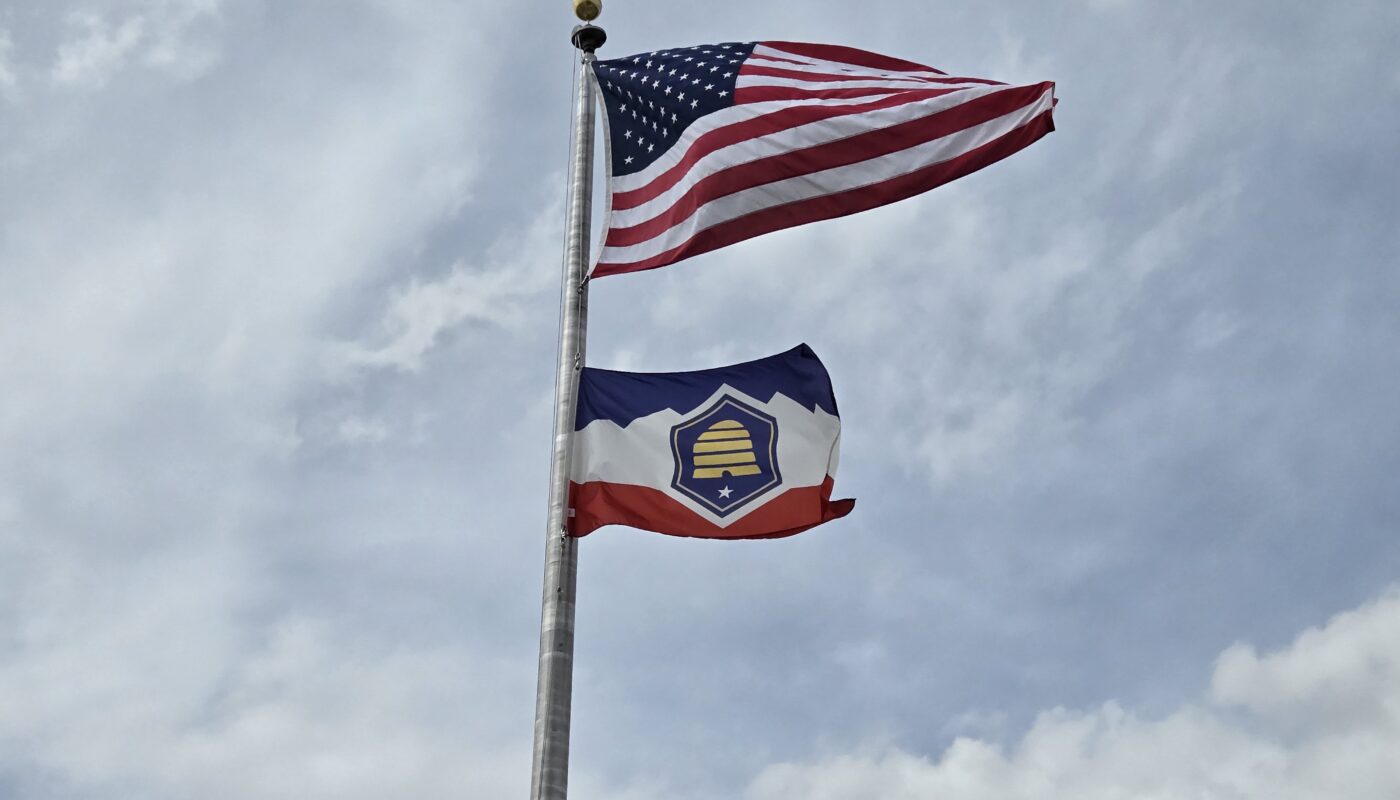The Utah State Legislature wrapped up the legislative session on Mar. 7 passing two pieces of legislation that heavily affect educational spaces. One of these is HB77 which aims to ban the display of certain flags on government property, including schools, in Utah and the other is HB267 which aims to ban collective bargaining.
Collective bargaining is a practice that allows the unions of public employees, such as a teachers’ union, to bargain things like wages and benefits on behalf of those employees as a collective instead of those employees individually bargaining with the government entity.
“I really don’t know if the passing of [HB267] is going to affect public education at all,” NS math teacher Matt Syme said, “but it gives school districts and it gives the state more freedom to do what they feel is necessary with the money they have.”
Beyond simple feelings of uncertainty as to what the effects of HB267 could entail, some teachers feel that the teacher shortage is enough to combat the state from taking too much away from teachers.
“The thing is that there’s a teacher shortage [in Utah], a serious teacher shortage,” NS science teacher Kolby Henrie said, “and if [the state] were to cut our salary or say ‘We’re not gonna do what we have been in the past with unions,’ they’ll just lose teachers.”
Henrie is generally combative of teachers’ unions due to the fact that, in his opinion, they don’t seem to benefit the public education system.
“It should be run as a business,” Henrie said. “I think that collective bargaining turns it into something controlled by government instead of a free standing business. In a real business, if you have an employee that is not cutting it then you get rid of them. If you have an employee that is not satisfied with their pay then they just go somewhere else…especially where [teachers] are in high demand because of a shortage.”
Other teachers feel as if a ban on collective bargaining will have negative effects on public employees.
“I think taking [collective bargaining] away from public employees is hurting us,” NS social studies teacher Natalie Wright said.
While teachers seem to have mixed opinions on what the outcome of HB267 will be, Rep. Jordan D. Teuscher (R-South Jordan), the bill’s chief sponsor, has clear aims for the outcome of its passing.
“For me it was really about trying to give more of a voice to government employees that may not be members of a union that aren’t well represented,” Teuscher said.
There are many cases in which only 20 to 30 percent of the employees that a government entity is responsible for are members of a union and the union gets to bargain on behalf of 100 percent of the employees, even if they aren’t in a union.
“[The unions] are the sole negotiating entity. If you take a teacher’s union for example, they tend to be [representing] teachers who have been teachers for a lot longer,” Teuscher said. “So those teachers care about ‘How do I get better retirement benefits? How do I get more salary when I have more experience?’…where your young teacher, that maybe isn’t a member of the union…they may care more about ‘Hey, how do I get maternity leave? How can I get more paid time off so I can spend more time with my family?’”
When a union is a sole negotiating entity with a school district, the ideas and preferences of a teacher who isn’t a member of the union aren’t represented, making those teachers feel that they are at a disadvantage in the negotiation process.
“It’s a matter of ‘How do we get more voices at the table when negotiating an employment contract.’” Teuscher said.
Some teachers feel as if they still heavily benefit from unions collective bargaining even when they are not a member of the union.
“I can say I have been benefitting from the union even though I am not a member,” Wright said.
HB77 aims to heavily restrict the display of flags on government property. The bill defines “display” as “…to place a flag in a prominent location on government property where the flag is easily visible.” The bill lists specific flags that could be displayed on government property.
The bill’s senate sponsor, Sen. Dan McCay (R-Riverton), has expressed that the bill aims to maintain a political neutrality in government buildings so that all people feel welcome to participate in the political processes within government buildings.
“…it sets the public in a position where they may not feel, because of the opinion being expressed on the outside of the building, that they are welcome to do business or work with their government,” McCay said in the legislative chamber.
The bill’s chief sponsor, Rep. Trevor Lee (R-Layton), now shares this as his original intent of the bill, though he did not originally express these intentions. In social media posts, Lee stated that the bill did intend to target pride flags.
Lee had also expressed in hearings that the exemption to the ban for “historic versions of a flag temporarily displayed for educational purposes” would include flags like the Nazi and Confederate flags. Lee expressed that this was in an effort to not censor history though many feel as if it would be entirely unnecessary to display those flags to effectively teach about the historical events they are associated with.
“I think you have to be really careful, especially as an educator,” Wright said. “These flags have a lot of symbolism and a lot of ties to ideologies that are harmful…I don’t think there would be a need to display those types of symbols.”
Lee would later amend the bill to allow for historic versions of a flag approved within the curriculum of a school to be displayed temporarily for educational purposes. The current version of HB77 allows for the display of the historic versions of flags defined in subsections 3 (a) and (b) of the bill which would include historic versions of the Utah and American flags.




